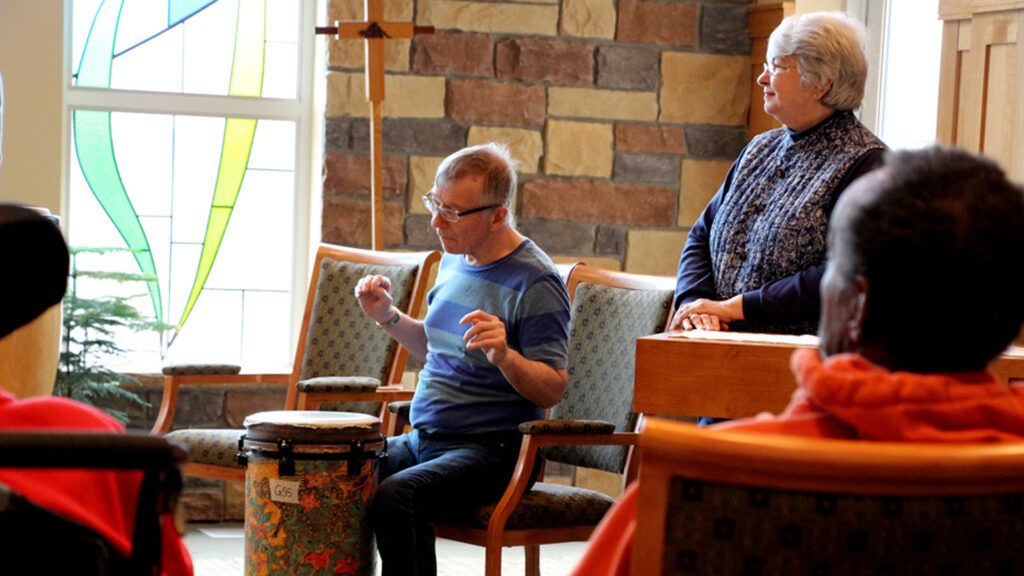Content provided by Good Samaritan Society.
It started out with some minor adjustments to their daily lives. But when helping her husband, Fred, deal with a progressive disease turned into an around-the-clock obligation, Jennette Wasmund knew she needed to get help — for both of them.
Fred has Huntington’s disease, a genetic condition that slowly robs the memory, cripples the body and usually involves full-time care in later stages. His mother, sister and one of his sons all have Huntington’s. Jennette suspected something was wrong with Fred when her children were young, but nothing serious stood out. Even when the diagnosis came, they tried to carry on with life as usual, continuing to work and take vacations.
“We didn’t let this disease define him,” Jennette says. “We didn’t want him to feel that this was who he was.” When his symptoms became much worse there was more pressure on Jennette to help him. But, she could still leave for several hours at a time and he would watch TV and feed himself.
Eventually, Fred began to fail physically and his weight dropped to 118 pounds. Jennette couldn’t leave him alone anymore. It limited her time with friends and family. “It was then that I thought I had to move forward on this because I couldn’t leave him alone,” says Jennette of finally deciding to look for help.
Finding the Right Home
The couple turned to Good Samaritan Society – Specialty Care Community in Robbinsdale, Minnesota, which has an entire unit dedicated to Huntington’s disease care. Keeping Fred comfortable was one reason for the move. Another was keeping him happy and actively involved in life through music therapy.
“He has learned how to play the African drum, which is so dear to his heart,” Jennette says of her husband. “If he can’t sleep at night, he will get up and pound on that drum to relax himself.”
Music Therapy’s Ripple Effect
Staying involved through music therapy has benefited Fred in other ways, Jennette says. Fred performs at church, events such as funerals, and in a rock group within Specialty Care Community.
Music therapy can address physical, emotional, cognitive and social needs, according to the American Music Therapy Association. Its benefits also extend beyond Fred. Seeing Fred happy has made Jennette happy.
It also brought Jennette relief. She says the decision to place her husband in a care community was difficult and she felt guilty. However, “He has flourished here,” Jennette says. “It was probably the hardest and best decision I ever had to make.”
Learn More About Huntington’s Disease
Huntington’s disease (HD) is a fatal genetic disorder that causes the progressive breakdown of nerve cells in the brain. It affects a person’s physical and mental conditions and has no cure. HD is known as a family disease because every child of a parent with HD has a 50/50 chance of carrying the faulty gene. There are about 30,000 Americans with symptoms and more than 200,000 who could inherit the disease. Early stage HD usually includes subtle changes in coordination, involuntary movements, depression, irritability and difficulty thinking through problems. The effects of the disease may make the person less able to work at their customary level and less functional in their regular activities at home. In the middle stage, movement might become more of a problem. Occupational and physical therapists may help maintain control of movements and deal with changes in thinking and reasoning. A speech pathologist can help with diminished and difficult speech. In the late stages, the person is totally dependent on others for care. Choking becomes a concern. At this stage, a person with HD might not be able to walk or speak. During all stages of HD, weight loss can correspond with worsening symptoms.
Source: Huntington’s Disease Society of America






